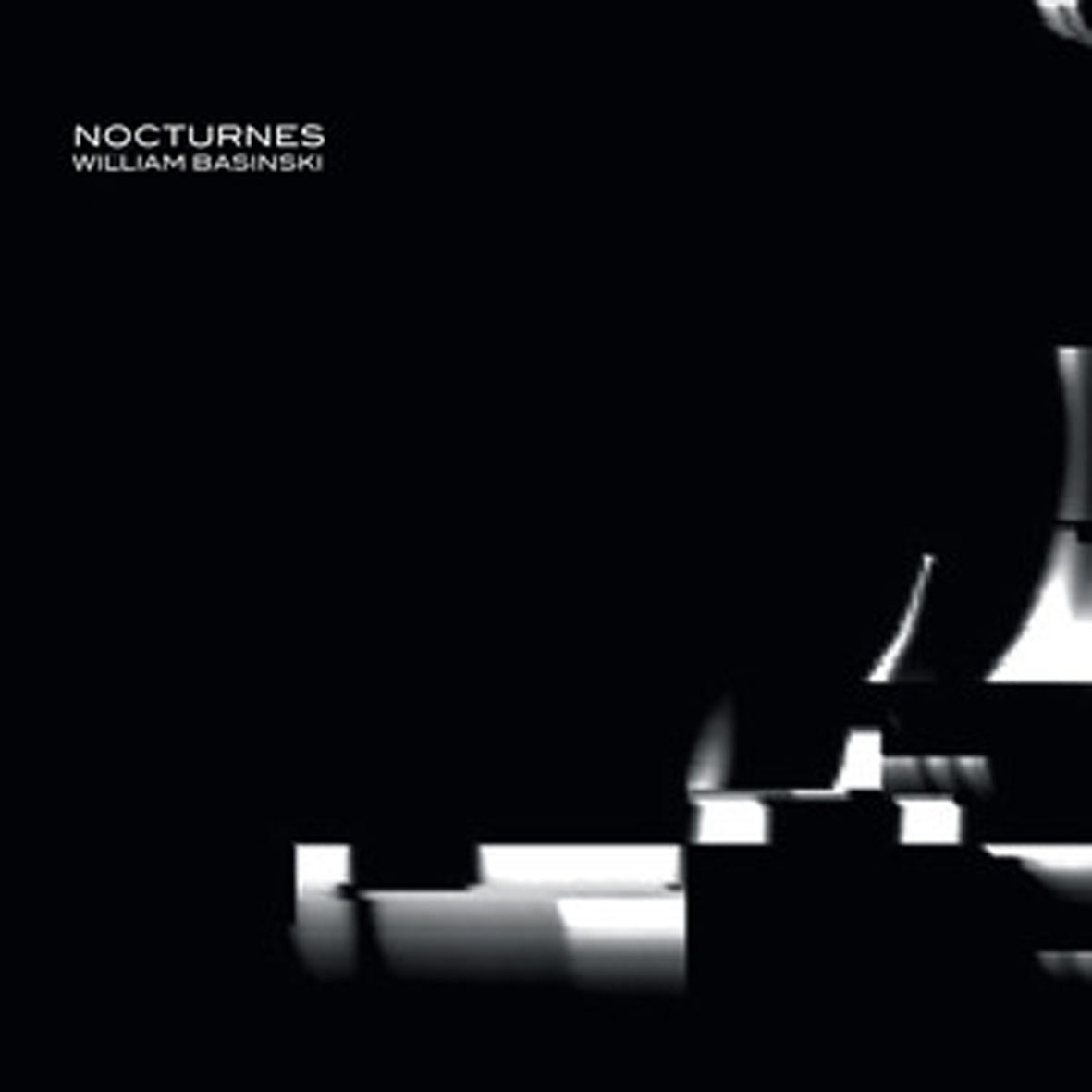William Basinski, "Nocturnes"
 I have historically had a very complicated relationship with William Basinski's work, as he has released some absolutely brilliant albums over the years, but he has also proven himself just as capable of producing fairly forgettable ambient music and/or flogging a single simple motif to death for a seeming eternity.  This latest effort lies somewhere in the middle of those two poles, as the blurred, uneasy title piece favorably calls to mind a more hallucinatory Morton Feldman, while the closing "The Trail of Tears" gradually devolves into an especially cold, dull, and dreary strain of dark ambiance that is best avoided.
I have historically had a very complicated relationship with William Basinski's work, as he has released some absolutely brilliant albums over the years, but he has also proven himself just as capable of producing fairly forgettable ambient music and/or flogging a single simple motif to death for a seeming eternity.  This latest effort lies somewhere in the middle of those two poles, as the blurred, uneasy title piece favorably calls to mind a more hallucinatory Morton Feldman, while the closing "The Trail of Tears" gradually devolves into an especially cold, dull, and dreary strain of dark ambiance that is best avoided.
I will never understand the bizarre alchemy that takes place, but it seems like almost all of Basinski's best work seems to result when he revisits and reworks recordings that he originally made 20 or 30 years ago.  "Nocturnes" is the latest such work in that vein, as it is built from a hyper-minimal tape and prepared piano composition from William's "San Francisco period" of 1979 to 1980 (I will ignore the fact that it is funny to attribute roughly 8 notes to a year-long period in one's life).
The piece's sole motif is quite a simple and bleak one, consisting entirely of a sad, skeletal descending piano melody and a couple of repeating chords, but Basinski somehow transforms it into something much weirder and deeper with his tapes: the notes all sound hazy, warped, and decayed and a queasy after-image trails behind each one.  Other than that, seemingly not much happens until the halfway mark (roughly 20 minutes in), at which point an insistent low whine joins the fray, making it sound like even the tape player is falling apart.  That turns out to be the piece's crescendo (of sorts) and it unfolds for quite some time, before gradually fading away to leave only the original motif.  If it were any shorter, it probably would not work nearly as well, but at just over 40 minutes, I had plenty of time to become fully mesmerized by its languorous spell.
Curiously, the more recent "The Trail of Tears" (2009) is much shorter and contains more themes, but feels comparatively uninspired and interminable.  It begins with some promise, however, as a somber, almost moaning melody repeats amidst a bleary haze.  Unfortunately, the haze gradually consumes the melody completely, leaving only a long stretch of forlorn-sounding murk with only some buried vestiges of the previous melody remaining. Later, a different motif appears that sounds like a glacially slowed-down and pitch-shifted cello ensemble playing at the bottom of a deep cavern.
Aesthetically, it seems to inhabit a stylistic gray area somewhere between early Caretaker (at best) and some of Cold Meat Industries' most unapologetically gloomy ambient releases (at worst).  I suppose that appeals to some people (like Robert Wilson, who borrowed an excerpt from this piece for his opera The Life and Death of Marina Abramovic), but I found it quite dull and dour coming from a composer of Basinski's stature.  In William's defense, I grant that the piece's floating emptiness was an aesthetic choice rather than a failure, but other people have covered that territory quite thoroughly already.  I will not necessarily say they covered it better, but that is solely because music in that vein all sounds the same to me.
Within the context of Basinski's discography, I would describe Nocturnes as a solid "second tier" release: not nearly as canonical as some of his other albums (92982, El Camino Real, The Disintegration Loops, etc.), but still quite a fine album in its own right if I pretend that "The Trail of Tears" is merely a bonus track (which is exactly what I intend to do).  It is very easy to be hard on William given his stature and my corresponding expectations, as the cynical part of me cannot help but note that Nocturnes sounds like it could have been realistically bashed out on a laptop in a single afternoon.  However, there is a definite artistry in surrendering the ego and letting go when something so simple sounds so perfect : anyone can loop a few piano notes for forty minutes, but it takes real vision to actually do it and have it come out sounding like some sort of spectral, rippling nightmare.
 



